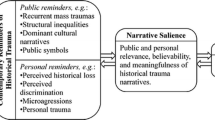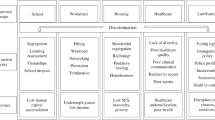Abstract
Culture, health, and medicine intersect in various ways—and not always without friction. This paper examines how liberal multicultural states ought to interact with diverse communities which hold different health-related or medical beliefs and practices. The debate is fierce within the fields of medicine and bioethics as to how traditional medicines ought to be regarded. What this debate often misses is the relationship that medical traditions have with cultural identity and the value that these traditions can have beyond the confines of the clinical setting. This paper will attempt to bring some clarity to the discussion. In so doing, it will delve into some controversial areas: (1) the debate around whether liberal states ought to embrace multiculturalism, (2) the existence and nature of group-differentiated rights, (3) the question of whether healthcare systems ought to embrace medical pluralism, and (4) what this would entail for policymakers, clinicians, and patients. Ultimately, I argue that liberal democratic states with multicultural populations ought to recognize medical pluralism as a matter of respecting group-differentiated and individual human rights.
Similar content being viewed by others
References
Appiah, Anthony. 2005. The Ethics of Identity. Princeton: Princeton University Press.
Beauchamp, Tom L., and James F. Childress. 2019. Principles of Biomedical Ethics. New York: Oxford University Press.
Burri, Regula Valérie, and Joseph Dumit, eds. 2010. Biomedicine as Culture: Instrumental Practices, Technoscientific Knowledge, and New Modes of Life. New York: Routledge.
Brummet, Abram. 2019. “Whose Harm? Which Metaphysic?” Theoretical Medicine and Bioethics 40 (1): 43–61.
Churchill, Wainwright. 2000. “Rapid Response: Integrated Medicine should be replaced by Pluralistic Medicine, research being paradigm-sensitive.” BMJ 320:188. https://doi.org/10.1136/bmj.320.7228.188/a
Coulthard, Glen S. 2007. “Subjects of Empire: Indigenous Peoples and the ‘Politics of Recognition’ in Canada.” Contemporary Political Theory 6 (4): 437–60. https://doi.org/10.1057/palgrave.cpt.9300307
Elkind, Peter. 2008. “The Trouble with Steve Jobs.” Fortune, March 5, 2008. https://fortune.com/2008/03/05/the-trouble-with-steve-jobs/
Fadiman, Anne. 1997. The Spirit Catches You and You Fall Down. New York: Farrar, Straus, and Giroux.
Good, Byron J. 2008. Medicine, Rationality, and Experience: An Anthropological Perspective. Cambridge: Cambridge University Press.
Hufford, D. J. 2010. “Folk Healing Comes of Age.” Paper Presented at UCD Centre for the History of Medicine in Ireland, University College Dublin, Dublin, October 29, 2010.
Kaldjian, Lauris Christopher. 2014. Practicing Medicine and Ethics: Integrating Wisdom, Conscience, and Goals of Care. New York: Cambridge University Press.
Kaptchuk, Ted J. 2000. The Web That Has No Weaver: Understanding Chinese Medicine. Chicago, IL: Contemporary Books.
Kidd, Ian James. 2013. “A Pluralistic Challenge to ‘Integrative Medicine’: Feyerabend and Popper on the Cognitive Value of Alternative Medicine.” Studies in History and Philosophy of Biological and Biomedical Sciences 44 (3): 392–400. https://doi.org/10.1016/j.shpsc.2013.05.005
Kirmayer, Laurence J. 2011. “Multicultural Medicine and the Politics of Recognition.” Journal of Medicine and Philosophy 36 (4): 410–23. https://doi.org/10.1093/jmp/jhr024
Kukathas, Chandran. 1992. “Are There Any Cultural Rights?” Political Theory 20 (1): 105–139.
Kukathas, Chandran. 2003. The Liberal Archipelago: A Theory of Diversity and Freedom. Oxford: Oxford University Press.
Kymlicka, Will. 1995. Multicultural Citizenship: A Liberal Theory of Minority Rights. Oxford: Clarendon.
Kymlicka, Will. 2009. “The Good, the Bad and the Intolerable: Minority Group Rights.” In Human Rights: An Anthropological Reader, edited by Mark Goodale, 58–67. Chichester, UK: Wiley-Blackwell.
Linde, Klaus, Gianni Allais, Benno Brinkhaus, Eric Manheimer, Andrew Vickers, and Adrian R. White. 2009. “Acupuncture for Migraines Prophylaxis.” Cochrane Database of Systematic Reviews, no. 1, CD001218. https://doi.org/10.1002/14651858.CD001218.pub2
Louhiala, Pekka. 2010. “There is No Alternative Medicine.” Journal of Medical Ethics, Medical Humanities 36 (2)c:115–17. https://doi.org/10.1136/jmh.2010.004358
Manheimer, Eric, Ke Cheng, Klaus Linde, et al. 2010. “Acupuncture for Peripheral Joint Osteoarthritis.” Cochrane Database of Systematic Reviews, no. 1,CD001977. https://doi.org/10.1002/14651858.CD001977.pub2
Moerman, Daniel E. 2002. Meaning, Medicine and the “Placebo Effect.” Cambridge: Cambridge University Press.
Morreim, E. Haavi. 2003. “A Dose of Our Own Medicine: Alternative Medicine, Conventional Medicine, and the Standards of Science.” The Journal of Law, Medicine & Ethics 31 (2): 222–35. https://doi.org/10.1111/j.1748-720X.2003.tb00083.x
Muyskens, Kathryn. 2022. “A Human Right to What Kind of Health?” Ethics & Social Welfare 16 (4): 364–79. https://doi.org/10.1080/17496535.2022.2062021
Muyskens, Kathryn. 2023. “A Human Right to What Kind of Medicine?” Journal of Medicine & Philosophy, May 2, 2023. https://doi.org/10.1093/jmp/jhad020
National Geographic. 2011. “Eating with Cannibals.” National Geographic Documentaries, June 17, 2011.
Offit, Paul A. 2015. Bad Faith: When Religious Belief Undermines Modern Medicine. New York: Basic Books.
Okin, Susan Moller. 1998. “Feminism and Multiculturalism: Some Tensions.” Ethics 108 (4): 661–84. https://doi.org/10.1086/233846
Okin, Susan Moller. 1999. “Is Multiculturalism Bad for Women?” In Is Multiculturalism Bad for Women? Written by Susan Moller Okin and edited by Joshua Cohen, Matthew Howard, and Martha C. Nussbaum, 7–26. Princeton: Princeton University Press.
Okin, Susan Moller. 2005. “Multiculturalism and Feminism: No Simple Questions, No Simple Answers.” In Minorities within Minorities: Equality, Rights, and Diversity, edited by Avigail Eisenberg and Jeff Spinner-Halev, 67–89. Cambridge: Cambridge University Press.
Phillips, Anne. 2007. Multiculturalism without Culture. Princeton: Princeton University Press.
Pigliucci, Massimo and Maarten Boudry. 2013. Philosophy of Pseudoscience: Reconsidering the Demarcation Problem. Chicago: University of Chicago Press.
Pilkington, Bryan. 2021. “Considerations of Conscience.” HEC Forum 33 (3): 165–74. https://doi.org/10.1007/s10730-021-09457-5
Rawls, John. 1996. Political Liberalism. New York: Columbia University Press.
Schneiderman, Lawrence J. 2000. “Alternative Medicine or Alternatives to Medicine? A Physician’s Perspective.” Cambridge Quarterly of Healthcare Ethics 9 (1): 83–97.
Shahvisi, Arianne. 2016. “No Understanding, No Consent: The Case Against Alternative Medicine.” Bioethics 30 (2): 69–75.
Song, Sarah. 2020. “Multiculturalism.” In Stanford Encyclopedia of Philosophy, edited by Edward N. Zalta. Metaphysics Research Lab, Stanford University. First published September 24, 2010; substantive revision September 9, 2020. https://plato.stanford.edu/entries/multiculturalism/
Taylor, Charles. 1994. “The Politics of Recognition.” In Multiculturalism: Examining the Politics of Recognition, edited and introduced by Amy Gutman, 25–74. Princeton: Princeton University Press.
Taylor, Charles. 1995. “Irreducibly Social Goods.” In Philosophical Arguments, 127–45. Cambridge, MA: Harvard University Press.
Torcello, Lawrence. 2013. “What’s the Harm? Why the Mainstreaming of Complementary and Alternative Medicine is an Ethical Problem.” Ethics in Biology, Engineering and Medicine 4 (4): 327–38. https://doi.org/10.1615/.2014011407
Vickers, Andrew J., Angel M. Cronin, Alexandra C. Maschino, et al. 2012. “Acupuncture for Chronic Pain: Individual Patient Data Meta-Analysis.” Archives of Internal Medicine 172 (19): 1444–53. https://doi.org/10.1001/archinternmed.2012.3654
Walzer, Michael. 1984. Spheres of Justice: A Defense of Pluralism and Equality. New York: Basic Books.
Wenar, Leif. 2021. “John Rawls.” In Stanford Encyclopedia of Philosophy, edited by Edward N. Zalta. Metaphysics Research Lab, Stanford University. First Published March 25, 2008; substantive revision April 12, 2021. https://plato.stanford.edu/archives/sum2021/entries/rawls/
Winkelman, Michael. 2009. Culture and Heafalth: Applying Medical Anthropology. San Francisco: Jossey-Bass.
Acknowledgements
I would like to acknowledge the help and support of Andres Luco, Chenyang Li, and Jonathan Wolff for their comments on earlier drafts.
Author information
Authors and Affiliations
Corresponding author
Ethics declarations
1 See Muyskens (2023) for a further discussion of harmfulness in medicine, as well as Muyskens (2022) for an exploration of harmful cultural conceptions of health.
2 As I have argued elsewhere, medicine (in the political arena) is best thought of as a relationship with several necessary elements: the patient, practitioner, treatment, and theoretical explanation (Muyskens 2023).Within this framework, the professionalization of the practitioner serves the interests of justice even if it may exclude some traditions. Such features are important in protecting patients’ interests and rights; everyoneis better off with the assurance that the person helping them in their hour of need has been accredited and trained and is accountable to some transparent set of standards.
Additional information
Publisher's Note
Springer Nature remains neutral with regard to jurisdictional claims in published maps and institutional affiliations.
Rights and permissions
Springer Nature or its licensor (e.g. a society or other partner) holds exclusive rights to this article under a publishing agreement with the author(s) or other rightsholder(s); author self-archiving of the accepted manuscript version of this article is solely governed by the terms of such publishing agreement and applicable law.
About this article
Cite this article
Muyskens, K.L. Medical Pluralism as a Matter of Justice. J Med Humanit 45, 95–111 (2024). https://doi.org/10.1007/s10912-023-09809-x
Accepted:
Published:
Issue Date:
DOI: https://doi.org/10.1007/s10912-023-09809-x




